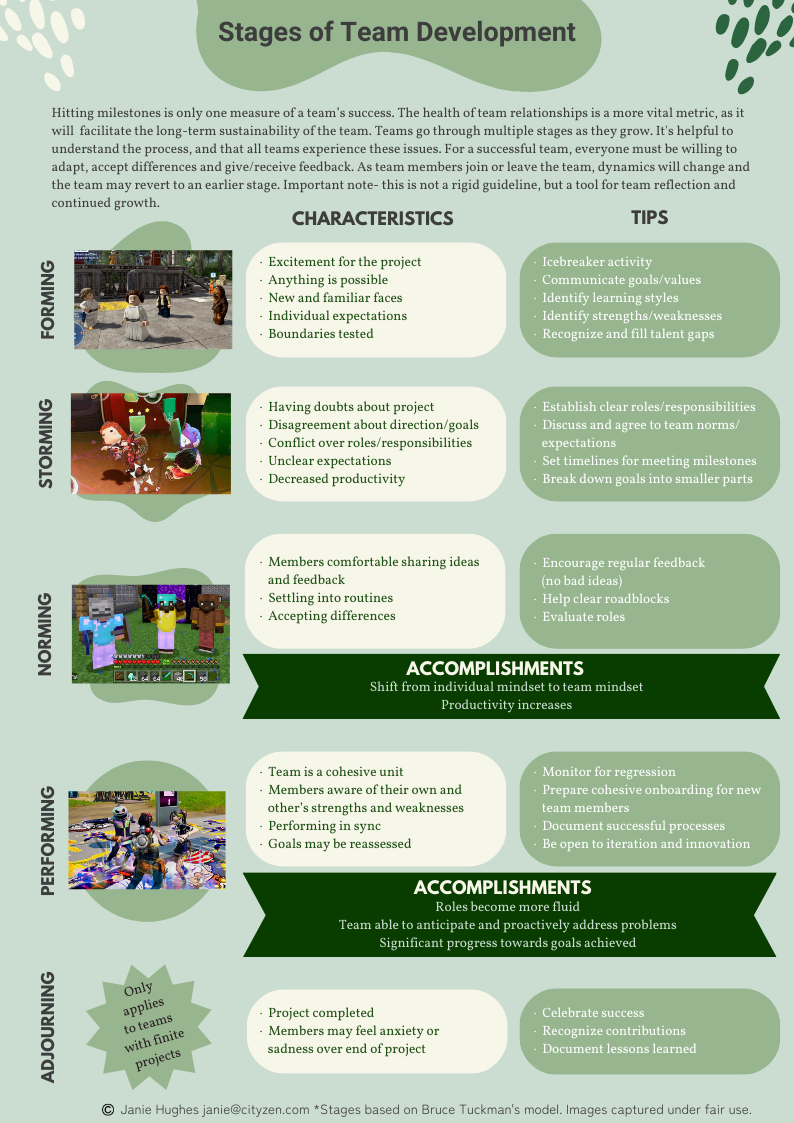Great Teams Can Accomplish Anything
Does it feel like your team is in constant conflict? All teams go through the same stages of team development. Unfortunately, many teams get stuck in the conflict stage, also known as 'storming'. This helpful infographic will explain the stages in an easy to digest format, with tips for getting past each stage and becoming the high performing team you've always dreamed about. The more you know, the more you grow!

But wait, there's more! Unfortunately, it is possible to revert to previous stages. Several things can cause this to happen.
New Members
New members can be great for a team as they may challenge norms and find areas to be improved. As new members join a team, some roles need to be reshuffled. Even if the new person is filling a vacancy. They may have different skill sets than the person they are replacing.
Tips for Acclimating New Members:
— Establish proper onboarding materials so they can become familiar with the established norms and processes
— Be flexible and open to change
— Listen to their ideas! This is often where innovation occurs.
New Projects
New projects can be exciting, but they may have very different requirements and challenges than previous projects. They will often require new skills, a change in processes and members may disagree on goals.
Tips for Starting New Projects:
— Scope out requirements
— Reevaluate roles and norms
— Fill any skill gaps by bringing in new members
New Leadership
This can be a tough one. When there are leadership changes, you may experience changing priorities, scrapped projects and teams getting reshuffled. Team members may feel very vulnerable and become more cautious and reactive.
Tips for Adjusting to New Leadership:
— Bring them up to speed on your team's accomplishments
— Go over the current goals and expectations/roles/norms of the team
— Adjust based on their leadership style
If you want your team to get back to performing as soon as possible, it's important to recognize and adjust to changes. When teams understand this process of team development, they can pivot and adapt quickly to perform at the highest levels. They are also more likely to be open to working together to solve problems and create an environment where everyone feels valued and heard. A bonus, performing teams lead to an increase in employee retention as well. Most people that quit their jobs out of frustration, are stuck on teams perpetually in the storming stage. Just like in gaming, no one wants to be on a squad where everyone is arguing, and you are losing every match.
Now get out there and create the most amazing team you've ever been on. Avengers Assemble!
Want to learn more? Connect with me on LinkedIn!